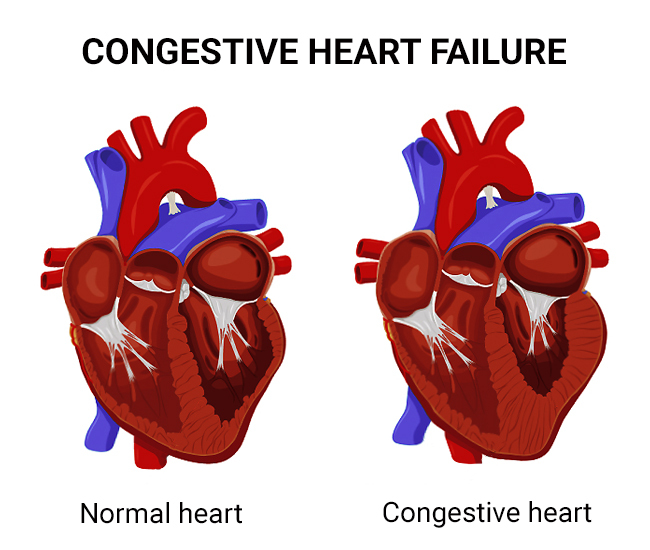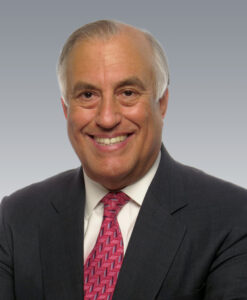
Heart failure occurs when the heart fails to pump blood as it’s supposed to do. Some of the reasons that cause heart failure are reversible or manageable when discovered on time. However, in most cases, heart failure occurs after the heart has been damaged or weakened by other cardiovascular conditions. It’s advisable to find a good cardiologist near you for a proper examination of your heart conditions.
The parts of the heart that mostly fails are the ventricles because they are involved in blood pumping. For example, most heart diseases start from the left ventricle because it’s the one that does a lot of work in pumping blood from the heart to the body.
Unfortunately, according to the American Heart Association, congestive heart failure cannot be cured, but it’s treatable depending on your willingness to follow the doctor’s advice.
The Pumping Efficiency Can Be Affected by Various Reasons Like:
- The build-up of fluid sacks around the heart: The condition is mostly called pericardial effusion. The buildup of fluid around the heart puts pressure on its muscles, and this negatively affects its pumping capability due to thickened muscles from the fluid-filled sacks.
- Porous septum (Atrial or Ventricle Septal Defects): A porous septum is a condition that is mostly present from birth. It’s known by many as holes in the heart. When the oxygenated blood and the deoxygenated blood mix due to the porous septum, the heart has to overwork to compensate for the lost oxygen. This overworking can easily lead to heart failure.
- Malformed valves: When the valves in the heart are not properly closing, or they become narrowed, the heart overworks to compensate for the lost volume or push the blood’s buildup in the heart chambers. This overworking of the heart can easily lead to heart failure.
- High blood pressure: According to research done at the Harvard Medical School, high blood pressure is one of the biggest risk factors leading to heart failure.
As the blood passes through the blood vessels at high pressure, tears occur on the walls of the blood vessels. These scar tissues make it easy for cholesterol build-up, which leads to narrowing of the vessels.
As the vessels narrow, the heart becomes overworked as it tries to push the blood in the constrained vessels. This straining of the heart and the blood vessels can easily lead to heart failure. - Diabetes: Diabetes is a condition in which the body is unable to regulate its blood sugar properly. High blood sugar damages the blood vessels and the nerves responsible for controlling blood pressure and heart contraction.
- Coronary artery diseases or narrowing of the arteries: The narrowing of the blood vessels mostly results from fat deposits and buildup of cholesterol. This can happen due to a variety of reasons.
When this happens, the heart does not get the required blood and oxygen supply, and some of its areas start to become weak. The weakened heart fails to pump properly and goes into failure. - Cardiomyopathy: This refers to a disease that affects the heart muscles. This condition causes the heart muscles to become rigid and thick or loose and dilated. The major types of Cardiomyopathy are dilated, hypertrophic, restrictive, ATTR-CM, and Arrhythmogenic right ventricular dysplasia. The thickening or dilatation of the heart muscles occurs to compensate for the lost pumping capabilities.
Practices That Can Help When Exposed to Risks of Heart Failure
- Regular exercise
- Proper stress management
- Reducing salt and sodium intake
- Weight gain management
What Are the Symptoms of Heart Failure?
Based on research, some of the major signs and symptoms of heart failure are:
- Difficulty breathing while lying down or when involved even in small exercises
- Fluid buildup in the legs which is commonly known as edema
- Having irregular heartbeats
- Constant coughing with blood-stained phlegm
- Lack of concentration and constant lethargy
- Rapid weight gain from fluid retention
- Severe chest pains with no justified cause
If you have any of these symptoms, you must see a cardiologist’s doctor immediately.
Major Tests for Congestive Heart Failure:
Dr. Steven Reisman is an NYC cardiologist who specializes in the diagnosis and treatment of heart failure. Once your cardiology doctor suspects a congestive heart failure condition, they will perform certain tests to confirm whether the condition is present or absent.
Some of the tests that can perform are:
- Electrocardiogram (ECG or EKG): It records the heart’s electrical activity through electrode patches attached to the chest. If you are heart is overworked due to failure, it can show up on your EKG.
- Echocardiogram: This is a test that your cardiology doctor might perform to evaluate the effectiveness of the heart muscles. It basically measures how well the heart is pumping blood to the rest of the body and also checks whether the valves are working properly.
- Radionuclide ventriculography: It’s a test that measures the pumping efficiency of the left and right ventricles. These are the two chambers responsible for pushing blood out of the heart.
How is Heart Failure Treated?
Dr. Steven Reisman specializes in the management of heart failure. Following are the main principles of management of heart failure, as your cardiology specialist would explain to you:
- Treating any reversible cause: The first thing in managing heart failure is to treat any reversible cause that might be precipitating the failure. For instance, if your heart failure is due to high blood pressure, the first step would be to control your hypertension.
- Medication: The second step is to use a different medication. These medications help improve your heart function by several mechanisms. Some medications reduce the rate of your heart contractions so that your heart does not overwork. Other medicines help reduce the fluid buildup in your body. This also helps save your heart from overworking.
- Devices: Your cardiology doctor would suggest using devices like pacemakers if your heart failure is too severe or if medicines are not helping.
Heart failure is a condition that affects the pumping efficiency of the heart. It can be acute or develop over time. Depending on how severe the heart failure is, the symptoms and signs might vary. Seeing a good cardiologist and going for a cardiac insufficiency test is the only way to manage the condition. Look for the best cardiologist near you or ask for a referral from a friend.

Dr. Steven Reisman is an internationally recognized cardiologist and heart specialist. He is a member of the American College of Cardiology, American Heart Association, and a founding member of the American Society of Nuclear Cardiology.
Dr. Reisman has presented original research findings for the early detection of "high risk" heart disease and severe coronary artery disease at the annual meetings of both the American College of Cardiology and the American Heart Association. Dr. Reisman was part of a group of doctors with the Food and Drug Administration who evaluated the dipyridamole thallium testing technique before the FDA approved it.
Dr. Steven Reisman's academic appointments include Assistant Professor of Medicine at the University of California and Assistant Professor at SUNY. Hospital appointments include the Director of Nuclear Cardiology at the Long Island College Hospital.



